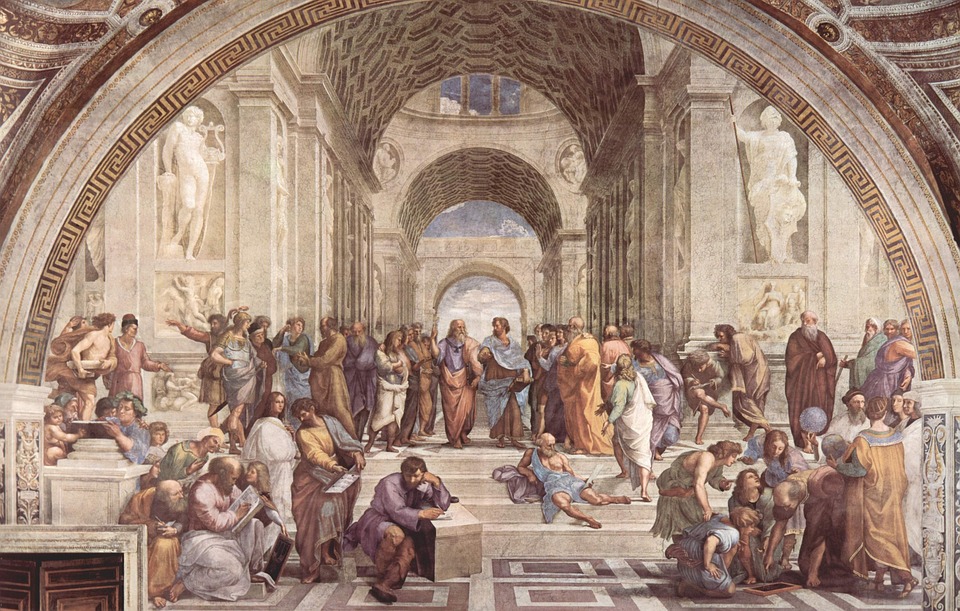Mathematics and Metaphysics: A Philosophical Exploration
Mathematics and metaphysics have been intertwined throughout history, influencing not only how we understand the universe but also the nature of reality itself. This article seeks to delve into the philosophical connections between mathematics and metaphysics, exploring questions about existence, abstraction, and the limits of human understanding.
The Nature of Mathematics
Mathematics is often considered the language of the universe, a systematic framework that allows us to describe, predict, and manipulate phenomena in the physical world. Its foundational principles are rooted in logic and abstraction, enabling mathematicians and scientists to formulate models that approximate or illuminate aspects of reality.
The Platonist View
One major philosophical perspective on mathematics is Platonism, which posits that mathematical entities like numbers and geometrical shapes exist independently of human thought. This view, rooted in the ideas of ancient philosopher Plato, suggests that mathematical truths are discovered rather than invented. According to Platonists, mathematical objects exist in a non-physical realm akin to an abstract world of forms.
Critics of this viewpoint, however, question the existence of an abstract realm comprised purely of mathematical entities. They argue that while we can use mathematics to describe physical phenomena, the entities involved do not exist independently of human conceptualization.
Nominalism and Constructivism
Contrasting the Platonist view is nominalism, which asserts that mathematical entities do not have real existence outside of human language and constructs. According to nominalists, mathematics is a human invention—an intricate system of symbols and rules that provide us with tools for understanding the world.
Constructivism, a further evolution of this perspective, holds that mathematical truths are not given but constructed. Constructivists emphasize that numbers and equations are useful fictions that assist in our comprehension of various aspects of existence, implying that the act of doing mathematics is itself a creative process.
Metaphysics: The Study of Existence
Metaphysics is a branch of philosophy that addresses fundamental questions about existence, reality, and the nature of being. While mathematics deals with abstract entities and their relationships, metaphysics seeks to understand the underlying principles that govern reality itself. Important questions include the nature of objects, the existence of universals, and the interrelation of cause and effect.
The Intersection of Mathematics and Metaphysics
The interplay between mathematics and metaphysics raises profound questions. For example, how can abstract mathematical concepts provide insight into the workings of the universe? Conversely, can metaphysical inquiries about existence inform our understanding of mathematical truths?
Mathematical Reality and the Physical Universe
One of the most perplexing phenomena observed in physics is the fact that mathematical laws seem to govern the physical universe. The equations that describe gravity, electromagnetism, and quantum mechanics not only provide accurate predictions but also reveal deep truths about how the smallest particles and largest celestial bodies interact. This situation raises the metaphysical question: Why should mathematics, a human-constructed language, be so effective at describing physical reality?
Philosophers like Eugene Wigner have noted the "unreasonable effectiveness of mathematics" in the natural sciences, suggesting a metaphysical connection between mathematics and the fundamental structure of reality. This paradox gives rise to the idea that mathematical structures could be more than just useful abstractions; they may reflect an underlying reality that is inherently mathematical.
Ontological Implications
The ontological implications of this relationship are significant. If mathematical structures are real, then we may need to reconsider our understanding of existence itself. Some philosophers, like Roger Penrose, argue that the physical universe is fundamentally mathematical in nature. In this view, the reality we experience could be thought of as a shadow or manifestation of a more profound mathematical framework.
Alternatively, if one adopts a nominalist perspective, one might argue that the efficacy of mathematics does not imply its existence outside human reasoning. Instead, it suggests that our understanding of the universe is tightly woven with our cognitive capabilities. Thus, the structures of mathematics reflect more about our thought processes than about a universal reality.
Epistemological Challenges
The exploration of mathematics and metaphysics also raises questions regarding our ability to know and understand reality. What can we infer about the nature of existence through mathematics, and are there limits to what we can know?
Consider how mathematical theories have evolved over time. Different systems, such as non-Euclidean geometry or calculus, have expanded our conception of space, continuity, and change. The increasingly abstract nature of advanced mathematics (such as topology and category theory) challenges our intuitive understanding and forces us to confront the limits of human cognition.
These epistemological challenges lead to important inquiries like: Can human beings ever attain a true understanding of the universe, or are we limited by our conceptual frameworks? Are mathematical truths absolute, or are they contingent upon human interpretation?
Ethics and Aesthetics
Mathematics also raises ethical and aesthetic questions that intersect with metaphysical considerations. For instance, the beauty of a mathematical theorem can evoke a sense of aesthetic appreciation similar to that found in art or literature. Some mathematicians describe the experience of uncovering a profound mathematical truth as a type of creative revelation.
Ethical Implications of Mathematical Models
In applied mathematics, the use of models carries ethical implications, particularly concerning how these models can affect real-world situations. For example, statistical models used in social sciences can shape policies that impact people’s lives. The responsibility that comes with manipulating mathematical models invites ethical considerations regarding accuracy, transparency, and the potential consequences of such manipulations.
Conclusion
The relationship between mathematics and metaphysics is a rich field of philosophical exploration, raising fundamental questions about existence, reality, and the nature of human understanding. As we grapple with these questions, we realize that the disciplines are not merely abstracts but are deeply embedded in our comprehension of the universe and our place within it.
The ongoing dialogue between mathematics and metaphysics invites us to remain open to the mysteries of existence and the potential for deeper insights. While definitive answers may elude us, the questions themselves enrich our understanding of the world, encouraging us to explore the intricate interplay between abstract thought and the tangible reality in which we live.
In the end, the exploration of mathematics and metaphysics is not merely academic; it is a genuine quest for meaning, understanding, and the nature of existence itself. Whether we find ourselves in a world of independent mathematical realities or in a fabric woven by human conceptualization, the journey of inquiry continues to inspire and challenge us.
In writing this article, sources drawn upon include foundational texts in the philosophy of mathematics and metaphysics, as well as current research in the intersection of these fields. For a deeper exploration of these themes, I recommend works by philosophers such as Roger Penrose, Eugene Wigner, and others who contribute to the understanding of mathematics’ role in our conception of reality.
[Source: Wigner, Eugene. "The Unreasonable Effectiveness of Mathematics in the Natural Sciences." Communications on Pure and Applied Mathematics.]

























Add Comment